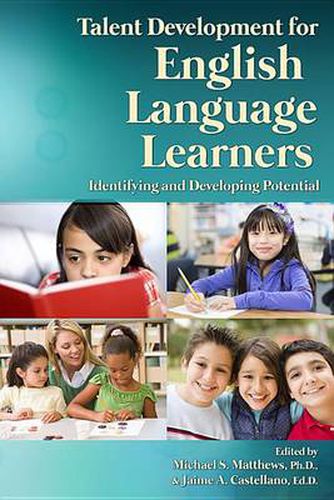Readings Newsletter
Become a Readings Member to make your shopping experience even easier.
Sign in or sign up for free!
You’re not far away from qualifying for FREE standard shipping within Australia
You’ve qualified for FREE standard shipping within Australia
The cart is loading…






Talent Development for English Language Learners offers concrete guidance to teachers, schools, and administrators seeking to maximize the potential of all of their students. Each chapter will focus thematically on an issue relevant to developing the talents and potential of gifted English language learners (ELLs) in inclusive educational settings. Examples of how schools or educators might conventionally conceptualize and handle the issues related to ELLs and what the concerns or unintended negative outcomes are for gifted ELLs are provided. The authors focus on what an ideal response might be from the lens of both the gifted education and the language education field, and how collaborative efforts across these perspectives yield effective interventions in schools and related educational settings for students who are both English language learners and highly academically able.
$9.00 standard shipping within Australia
FREE standard shipping within Australia for orders over $100.00
Express & International shipping calculated at checkout
Talent Development for English Language Learners offers concrete guidance to teachers, schools, and administrators seeking to maximize the potential of all of their students. Each chapter will focus thematically on an issue relevant to developing the talents and potential of gifted English language learners (ELLs) in inclusive educational settings. Examples of how schools or educators might conventionally conceptualize and handle the issues related to ELLs and what the concerns or unintended negative outcomes are for gifted ELLs are provided. The authors focus on what an ideal response might be from the lens of both the gifted education and the language education field, and how collaborative efforts across these perspectives yield effective interventions in schools and related educational settings for students who are both English language learners and highly academically able.